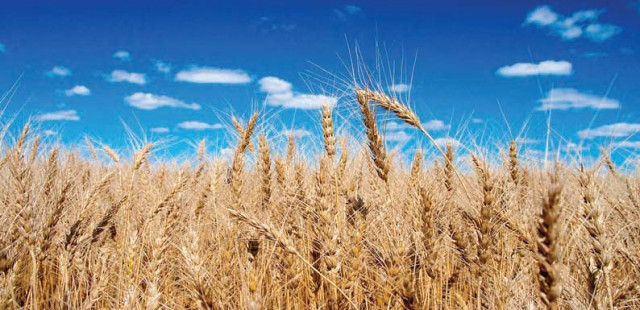Wheat support price and distribution system
Public system stabilises wild swings in food prices, but leaving it to market will be politically costly

Support price helps the farming community a great deal. In the presence of surplus stock of wheat, prices usually decline. For instance, the wheat stock became surplus in FY 2024 as the government bought a lesser quantity from farmers. As a result, the price of wheat started to fall despite the announced support price of Rs3,900 per 40 kg.
Since the stock of wheat remained in surplus in 2024, the price kept on dropping gradually. Many farmers held their wheat stocks in anticipation that prices would rebound. However, that did not happen. The prices went down to around Rs2,800 per 40 kg before the arrival of new crop in March 2025.
Adequate production and supply of wheat play a pivotal role in stabilising food prices. If the supply of wheat decreases, it will increase food prices. Despite drought conditions in the outgoing winter, the production and supply of wheat remained at an adequate level.
The international price of wheat has decreased by around 9% from March 2025 to May 2025. However, the domestic price reduced from Rs2,800 per 40 kg to Rs2,200 per 40 kg due to the absence of the support price.
Support price normally benefits the large farmers as they have access to the reins of power. Medium-sized farmers get benefits too, since they can hold their crop. The benefits accrued to small farmers depend on the existing stock of wheat. If the new crop is in short supply, the small farmers get benefits from the support price. Otherwise, they dispose of their crop at less than the support price. Hence, there is a differential impact of the support price on farmers.
The main purpose of the support price is food security. The government holds a buffer stock of wheat to stabilise prices. If prices go up in the domestic market, the visible hand of the government releases some part of the stock to bring them down. Hence, price stability is achieved through a buffer stock mechanism.
The best way to maintain the buffer stock is through the domestic crop. If foreign exchange reserves are low and wheat shortage occurs, the government must import the commodity, which will further strain the reserves.
In addition, the international tendering, bidding, shipping and transporting of wheat to ports would take time and then loading and carrying them within country. Such delay could be politically costly for the government.
Support price also provides incentive to farmers to grow crops which are direly needed in an economy. Wheat is not a cash crop and farmers have the option to switch to other crops provided their expenses are not met. Since farmers have experienced two consecutive years of price crash, the probability is high that they would not grow wheat next year. In the absence of support price, the cultivable area of wheat would be reduced in the coming year.
Prices of food grains affect around 70% of the population in Pakistan. If prices become volatile, the government will rely on its public distribution system to stabilise the prices. Here the role of Utility Stores Corporation (USC) is pivotal. Its presence and outreach throughout the country act as a deterrent to profiteering and price gouging. Those who consider USC as a drag on resources live in a mythical world.
In a nutshell, the wheat support price and public distribution system go hand in gloves to stabilise the wild swings in food prices. Leaving this system to market will be politically costly. Let us see how policymakers respond in the evolving situation.
The writer is an independent economist who worked at SDSB, Lahore University of Management Sciences (LUMS)























COMMENTS
Comments are moderated and generally will be posted if they are on-topic and not abusive.
For more information, please see our Comments FAQ